Data-Pop Alliance led a training workshop on “Big Data, Economy, and Sustainable Development” in Mexico City on October 17-19, 2017 in partnership with the United Nations Economic Commission for Latin America and the Caribbean (UNECLAC) and the Mexican Presidency’s Coordinación de Estrategia Digital Nacional (EDN). The workshop is part of a comprehensive program, which includes other trainings and activities developed in collaboration with UNSSC with initial funding from the Hewlett Foundation, aimed to respond to major ‘Big Data literacy’ and data science needs and gaps of development and policy professionals around the globe. This workshop was the 3rd under our partnership with UNECLAC, following Santiago (March 2017) and São Paulo (September 2017).
It was preceded by a 1-day high-level seminar “Think Big: Data Innovation in Latin America and the Caribbean” on October 16th, organized by UNECLAC, EDN, and the MIT Sloan School of Management, featuring Alejandra Lagunes, Coordinator of EDN, Miguel Luengo-Oroz, Chief Data Scientist of UN Global Pulse, Emmanuel Letouzé, Director of Data-Pop Alliance (DPA), Lorenzo Valle, Director of Business at ITESM, Jorge Guzmán, researcher at MIT Sloan, Yolanda Martínez, head of the Digital Government Unit of Mexico.
The 3-day training workshop, hosted by the Digital Cultural Center, brought together 40 participants representing a diverse array of civil servants, data scientists, educators, and entrepreneurs from Mexico. Following DPA methodology, the workshop was structured around 4 “building blocks” of data literacy, termed C2 for Contexts and Concepts, M+T for Methods and Tools, D*S for Design and Strategy, and last but certainly not least, as a primary lens rather than an afterthought, ε for Ethics and Engagement, each with 3 specific learning objectives.
This professional training course included a series of presentations, panel discussions with experts in the field, and hands-on training sessions allowing participants to employ the skills and techniques discussed. The sessions and group activities were facilitated by Data-Pop Alliance team members from the US, Colombia, and Chile (Emmanuel Letouzé, Julie Ricard, Andrés Clavijo, Rodrigo Lara Molina, Natalie Grover), Estrategia Digital Nacional (Diana Blanco, Jorge Díaz, Paul Hindriks, Nancy Garcia), the UNECLAC (Jorge Patino), and MIT Media Lab (Alejandro Noriega).
Panels and Keynotes
The training workshop commenced with introductory remarks from Mario Castillo, Chief of the innovation and new technologies unit of CEPAL, and Jorge Díaz, Deputy General Manager of EDN, discussing the critical importance of big data in the development of Mexico and Latin America at large. Following this, was a framing presentation on Big Data’s applications and implications for development and democracy by Emmanuel Letouzé, of DPA.
Experts and leaders from both the private and public sectors also convened in a series of six panels throughout the workshop to delve more deeply into the four building blocks of Big Data. In “MX Futuro”, Lina Ornelas of Google Mexico, Raúl Rendon of the Mexican Secretary of the Economy, Sebastián Garrido of CIDE, and Alejandro Mazza of OPI discussed the ecosystem of Big Data in Mexico at the present. As they examined, there exists a great potential for public policy to benefit from the use of Big Data, from crisis responses to economic reforms. However, political, institutional, and education systems to support development of this field are insufficient and must be supported in order to realize the full potential of the technology at hand.
In the following panel, The 2030 Agenda in Mexico, Paulina Terrazas from the Mexican President’s office, Luis Iñaki Alberro of SEDESOL, and Enrique Ordaz of INEGI, related aspects of the current state of development in Mexico. The panelists outlined utility of data in making evidence-based actions and policy decisions. In addition, as Mr. Ordaz explained, the development indicators currently being gathered represent a small proportion of the population and use limited mechanisms to assess poverty in Mexico, leaving significant room for technology to improve the subjective nature of the present system.
As the recent series of earthquakes in Mexico vividly illustrate, there exists a great need for a coherent Emergency Response System. Miriam González of Humanitarian OpenStreetMap, an independent crowdsourced mapping initiative, described how the freely-reusable geospatial data aggregated on the platform aided in earthquake recovery efforts. Macarena Piombi from Google México, shared how their resources bring engineers to the localities most in need. Leonel Castañeda of the National Digital Strategy department of the Mexican President’s office provided insight into how the national government also utilizes these platforms and mass of data in public policy and targeting high-need areas.
The subsequent panel, Data in Action, expanded on the applications of Big Data in Latin America. Paul Hindriks of the National Digital Strategy department of the Mexican President’s office related their effort to track and report violence against journalists in the republic. The platform gathers reports of journalists’ locations and provides statistical analysis on the probability of future aggressions in certain localities. From the TIC Survey Division of CETIC Brazil, Fabio Senne recounted how web-scraping and tracking access to broadband internet has aided in the prediction of a host of other socioeconomic indicators.
The final panel, Privacy, Ethics, and the Legal Framework for Data Use in Mexico, provided a lens to consider the apparent tradeoff between taking advantage of the potential of Big Data in development applications, and the high risks of privacy and ethics violations in the process. Edgardo Martínez Rojas of INAI and Carlos Fernando Esponda from ITAM discussed the lack of a coherent plan in the Mexican government to manage these applications, including both in public and private usage. Alejandro Noriega Campero from the MIT Media Lab then confirmed the existence of a stark tradeoff between data usefulness and reidentifiability, building on a study exploring the value of CDRs at various spatial and temporal granularity levels and suggesting we need appropriate data sharing models coupled with spatiotemporal generalization levels to balance utility and privacy. Dra. Anahiby Becerril from INFOTEC, discussed the present lack of an ethical framework, such as the one outlined in The Menlo Report, to regulate the digital economy and its potential to violate personal privacy.
Technical Tutorials
Experts in the field presented several technical tutorials to provide the participants with tools for their projects. Andrés Clavijo from Data-Pop Alliance discussed a variety of methods and tools for mapping Big Data (Ushahidi, OpenStreetMap, and CrowdVoice, among others) and applications for Machine Learning. Rodrigo Lara Molina, also of Data-Pop Alliance, led the participants in an exercise of webscraping for internet prices using Python in order to evaluate and compare housing prices in several cities. Lastly, Javier Pérez Trufero and Jaime de Mora from Carto presented their ‘location intelligence’ platform to manipulate data using an SQL interface and the data visualization capacity of creating layers on a map.
Group Projects
During the three-day workshop, participants explored the stages and issues around building a data-driven project in six small groups. The project development required the participants to identify a target impact area, identify a need for innovation using Big Data, and design a comprehensive program to solve it. As the groups further refined the project objective, they analyzed potential project archetypes including the potential impact, resources, and results to be gained from each. Finally, following the Ethics Panel discussion on day three of the workshop, project groups revisited their proposals and received individualized input from Dta. Anahiby Becerril.
The subjects of the six group projects were:
- Inclusion in the Labor Market
- What do you do with my vote? Transparency and the electoral system
- #H2OMX Access to Clean Water
- MoviLab: Transit in Mexico City
- MOVITOOL: Partnership Building for Improved transit in CDMX
- SEGURApp: Real-time mapping of violence against women
Conclusion
An overarching goal of these workshops is to stimulate participants’ incentives and capacities to engage responsibly and effectively in Big Data initiatives. within and between key regional stakeholders, and to create connections between them, towards the creation of regional and global Communities of Practice. Participants’ evaluations of the workshop can be seen here. Our next training workshops will be held in Dakar, Bogotá, Bangkok, and Addis-Ababa. For more information, suggestions, or questions, please contact trainings@datapopalliance.org.

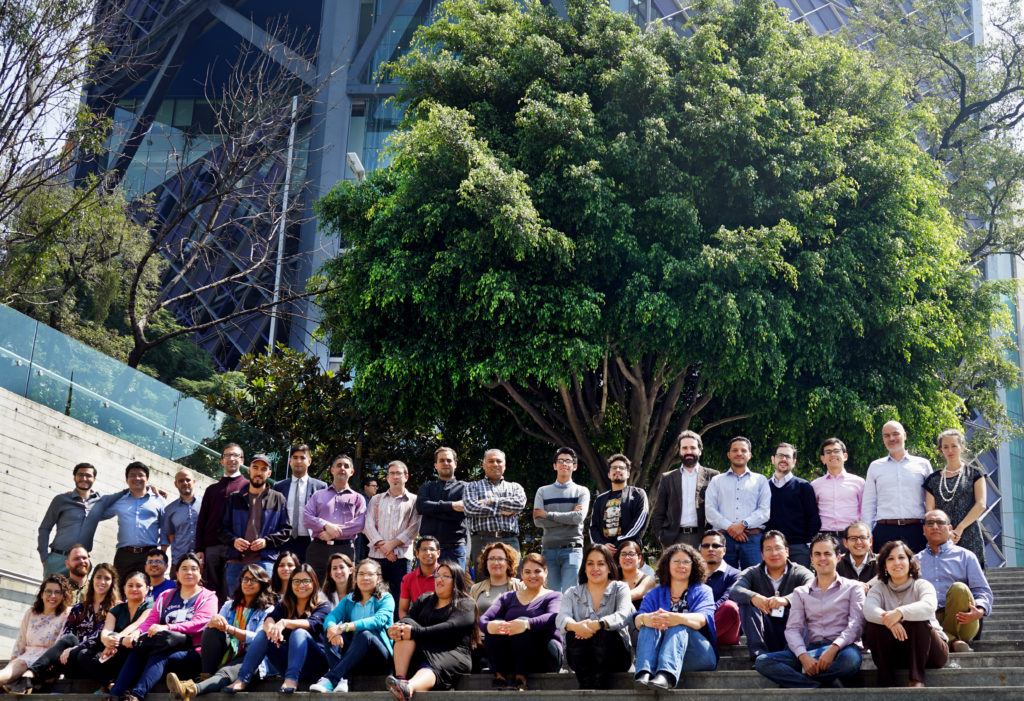
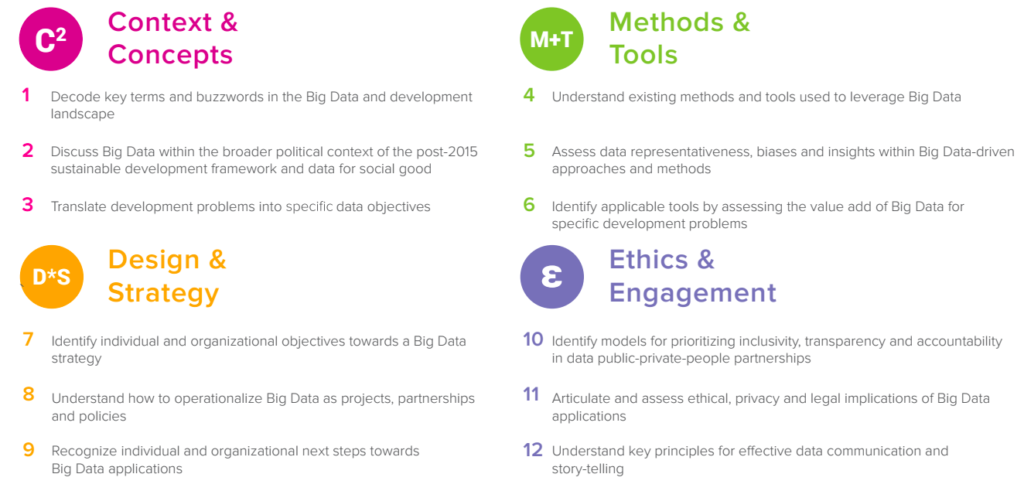
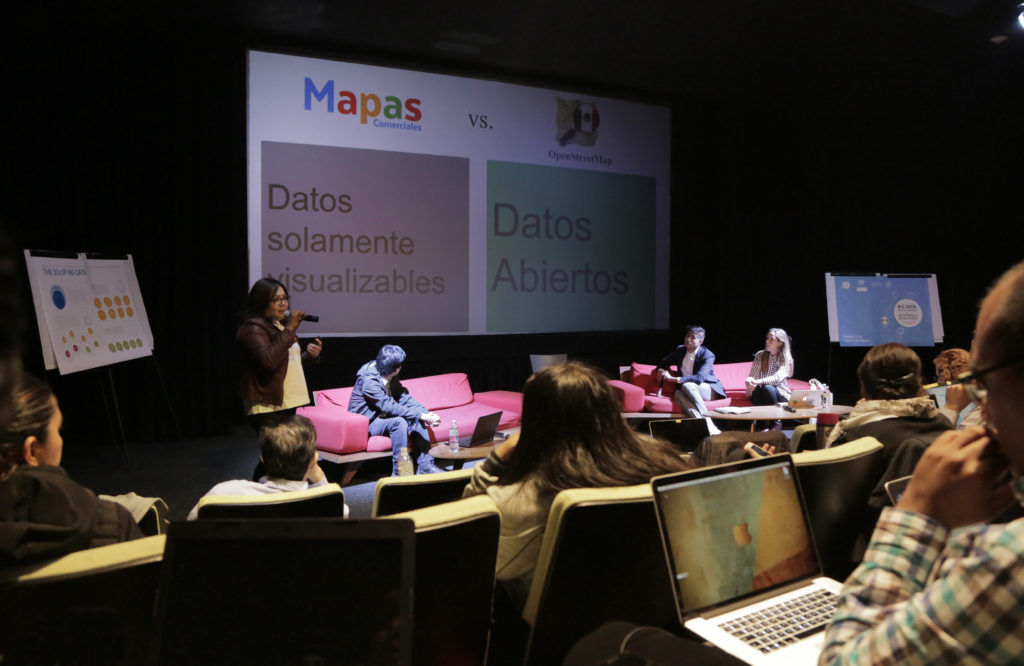
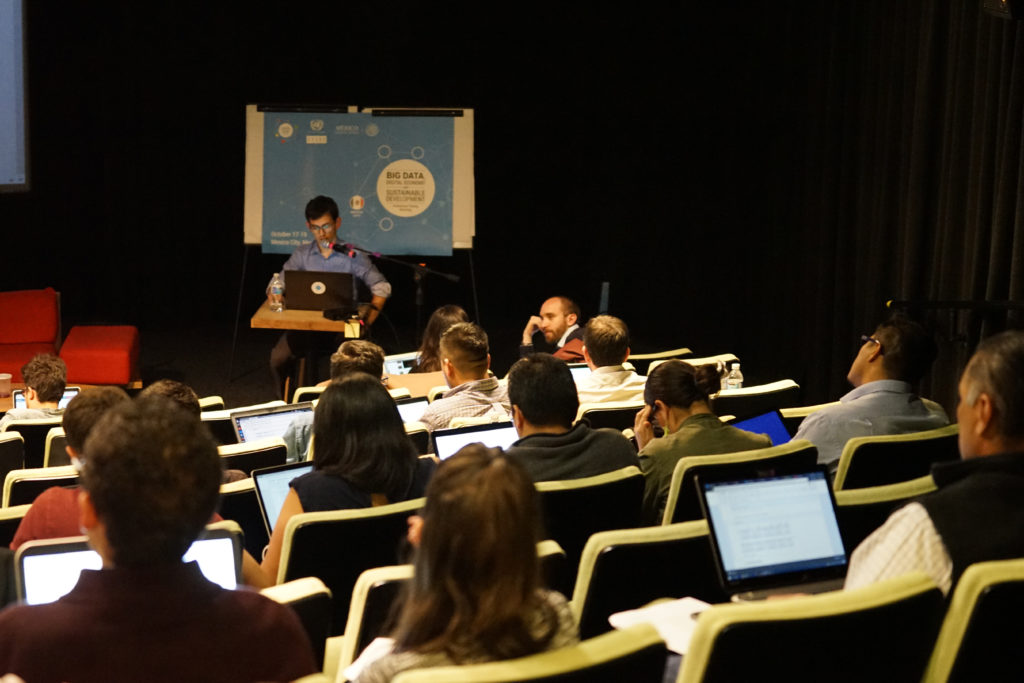
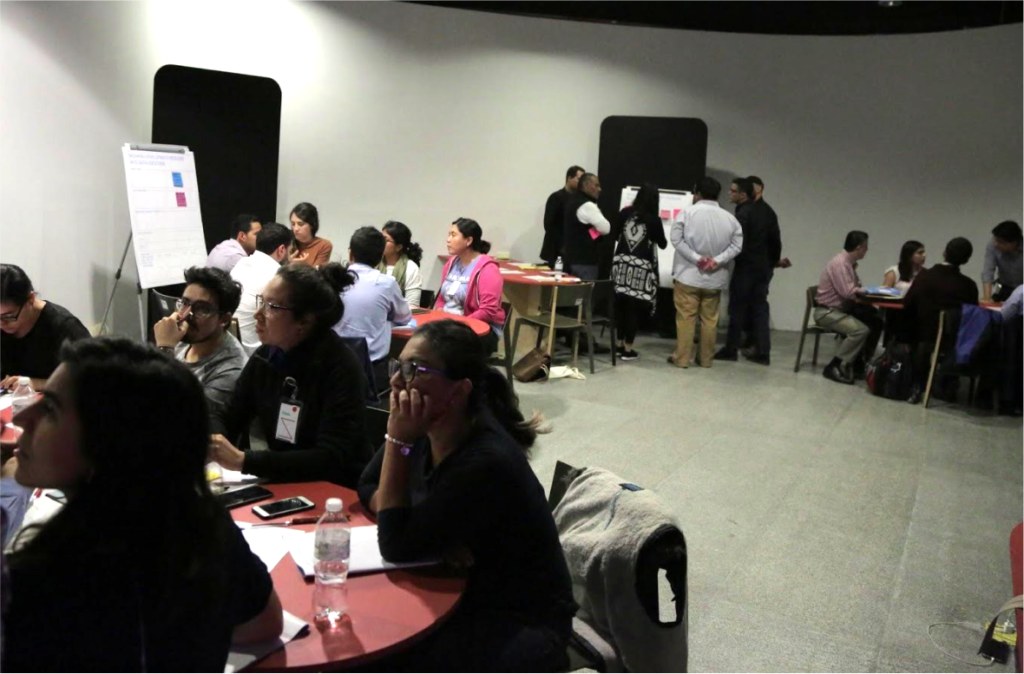
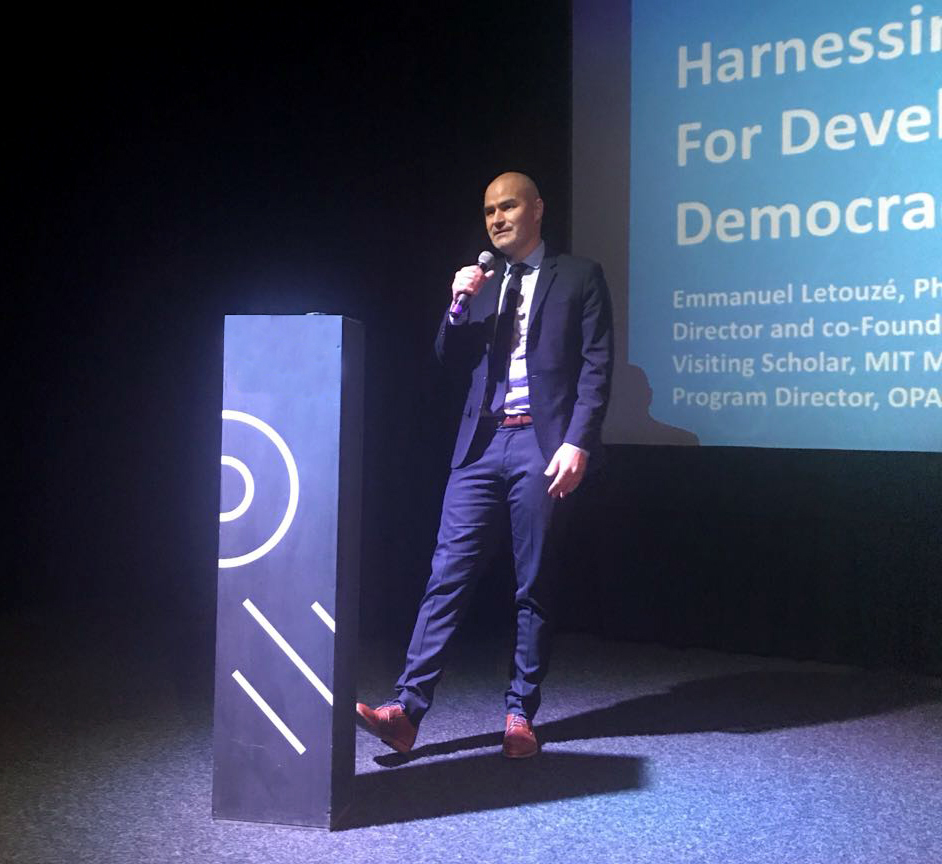

![M002 - Feature Blog Post [WEB]](https://datapopalliance.org/wp-content/uploads/2025/10/M002-Feature-Blog-Post-WEB.png)





